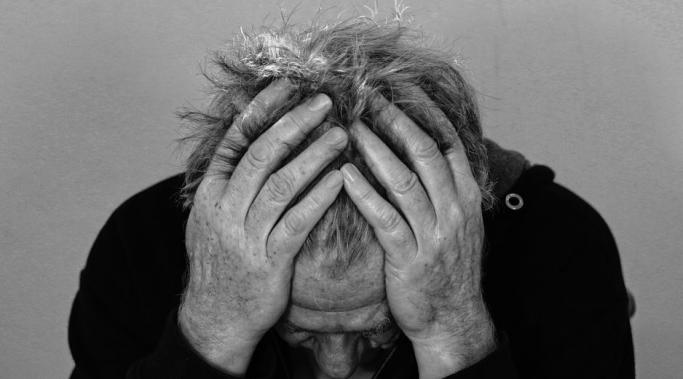Blogs
When it comes to gun violence, mental illness is most of the time an assumed precursor for that violence -- this stigma teaches fear. When mass shootings take place, especially in the U.S., the assailant typically is found to have been suffering from posttraumatic stress disorder, depression, schizophrenia, bipolar disorder – pretty much the staple mental illnesses that popular media knows. When that diagnosis isn’t present, the dig for it begins. News media heavily stigmatizes mental illnesses in this way which lead to fear and the assumption that all mental illnesses will lead to gun violence.
If asked what purpose anxiety has in their lives, people's answers might range from "absolutely nothing" to "torturing me and ruining my life." Admittedly, it often feels like anxiety exists for no other reason than to torment us. Further, if we try to find a point to our anxiety, we frequently come up with nothing. Believe it or not, though, anxiety frequently does have a purpose. Discovering it can help you beat anxiety.
Getting better sleep is an important part of living a blissful life (Develop Good Sleep Habits). Today I’m going to share three ways to help you get better sleep.
Life with dissociative identity disorder (DID) is a journey full of new discoveries, growth and understanding. It is also a journey full of denial, confusion, and pain. Just when you think you have a grasp on life with DID, something (a new alter, or a new memory, perhaps) comes along and shakes everything up. Life with DID can be a difficult journey, but it's not an impossible one.
Moms with mental illness, you need naptime during the summer. Your kids might be well over the napping stage. But as you plan your summer, consider cutting out a period of your day for naptime. Summer affords so many freedoms to families, but without a few built in rest-stops in the day, moms with mental illness can become very overwhelmed. Kids also become overstimulated in the sun and play. Everyone can benefit from a naptime this summer.
Handling grief healthily can be challenging. One of the hardest things people have to deal with during a lifetime is the loss of a loved one. When a traumatic event like this happens those left behind may have a difficult time processing their grief. As a result, they keep their feelings bottled up or in extreme cases turn to drugs or alcohol in an effort to ease the pain. Although all may seem lost and hopeless, there are positive ways to embrace grief. Read these tips for handling grief in a healthy way to learn how.
There are many things doctors won't tell you about psychiatric medications, but I'm going to focus on three. Recently, one of my readers left a comment detailing lies about psychiatric medications that resonated with me. She highlighted that psychiatric medications have many side effects, have withdrawal symptoms, and reminded me that psychiatric medications are expensive. So here are three things doctors won't tell you about psychiatric medications.
Schizophrenia and schizoaffective disorder are often accompanied by binge spending. It feels therapeutic but, remember, you’re not thinking clearly due to the illness. And if you have schizoaffective disorder in particular, you might be in the middle of a manic high. Here’s what can happen with schizophrenia and schizoaffective disorder when you pull out the credit card for a round of binge spending.
What is an anxiety tolerance level? Anxiety can seem like an insurmountable challenge, a life-halting obstacle. It's typical for people living with any anxiety disorder to feel as though they can't tolerate anxiety at all. The idea of having an anxiety tolerance level beyond zero might seem strange, pointless, or both. However, developing a system for rating your tolerance level for your anxiety can be a very helpful tool for managing and overcoming anxiety.
The opioid epidemic and hydrocodone/acetaminophen (Vicodin) use have spread through the United States like wildfire. The United States makes up only 4.6% of the world's population but consumes 80% of its opioids -- and 99% of the world's hydrocodone, the opiate that is in Vicodin. Most of those prescriptions are unnecessary. The use of hydrocodone/acetaminophen, the most popular pain relief drug in the country, has grown dramatically from 112 million doses prescribed in 2006, to 181 million in the U.S. today, according to a national survey done by the consulting firm Intercontinental Marketing Services (IMS) Health. Clearly there is an opioid epidemic and clearly, a large part of the problem is Vicodin use.









I believe she will only be able to rid herself of her demons, and hopefully her BPD as well, when she's ready to confront the abuse of her father. If she can put the blame where it belongs, she may stop projecting that victim/perpetrator cycle on the present men in her life. These demons are a metaphor for the purgatory she has created for herself. That reality has consequences in the real world, but it need not be real in the tangible sense. Exorcising her demons will require the expenditure of real physical energy and probably the destruction of aspects of her personality. If this ever happens, and it's possible but not probable, then these demons will evaporate. They are only as real as one's personality is real. In short, reality is not the question, it's what you make of the things you feel to be real.